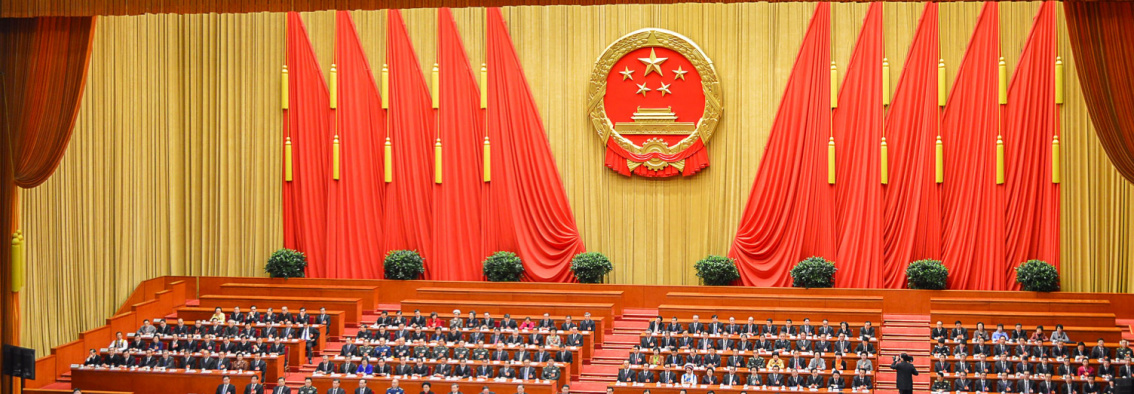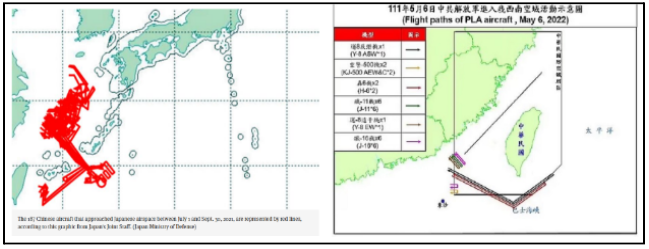Nauru has officially become the 183rd country to establish diplomatic ties with the People’s Republic of China (PRC). On January 24, China and Nauru formally re-established relations by signing a joint communiqué that read:
The Government of the Republic of Nauru recognizes that there is but one China in the world, the Government of the People’s Republic of China is the sole legal Government representing the whole of China, and Taiwan is an inalienable part of China’s territory. The Government of the Republic of Nauru undertakes that it shall no longer develop any official relations or official exchanges with Taiwan.
This statement was the culmination of a process that began on January 15, when the Pacific Island nation recognized Beijing’s “One-China Principle” (一個中國原則) and severed its diplomatic ties with Taiwan. The PRC Foreign Ministry “welcomed” the move by stating:
There is but one China in the world, Taiwan is an inalienable part of China’s territory, and the government of the People’s Republic of China is the sole legal government representing the whole of China. [This is] what has been affirmed in Resolution 2758 of the UN General Assembly and is a prevailing consensus among the international community. The Nauru government’s decision of reestablishing diplomatic ties with China once again shows that the one-China principle is where global opinion trends and where the arc of history bends.
Similarly, a Xinhua commentary stated that: “The choice made by the people of Nauru once again confirms that the one-China principle is a consensus of the international community and a recognized basic norm in international relations.” However, it is important to note that what China dubs as “consensus” primarily consists of efforts to poach Taiwan’s allies through loans, contracts, and aid, commonly disparaged as “checkbook diplomacy.” For instance, in 2019, Chinese companies approached Tuvalu with an offer of a USD $400 million project to build artificial islands to mitigate the effects of climate change, ostensibly in exchange for switching recognition. However, Tuvalu rejected the proposal and remains Taipei’s diplomatic partner.
Despite this modest victory, Beijing has been largely successful in peeling away Taiwan’s allies. Since the Democratic Progressive Party’s (DPP, 民進黨) Tsai Ing-wen’s (蔡英文) victory in 2016—after an eight-year “diplomatic truce” under the Kuomintang’s (KMT, 國民黨) Ma Ying-jeou (馬英九)—China has poached 11 of Taipei’s diplomatic allies. These countries (Kiribati, Solomon Islands, Dominican Republic, Burkina Faso, El Salvador, Panama, the Gambia, São Tomé and Príncipe, Nicaragua, Honduras, and Nauru) all switched recognition from Taipei to Beijing on the basis of the “One-China Principle.” Now, Taipei is left with only 12 diplomatic allies, mainly in Latin America, the Caribbean, and the Pacific. One of the most pressing concerns for Taipei is to prevent its remaining diplomatic partners from abandoning it.
Beijing’s Weaponization of the “One-China Principle”
According to the PRC, “There is but one China in the world, Taiwan is an inalienable part of China, and the Government of the People’s Republic of China is the sole legal government representing the whole of China.” This expansive statement is referred to as the “One-China Principle.” Interestingly, China today portrays this principle as a widely accepted consensus and fundamental norm in international relations. China validates this position based on its interpretation of United Nations Resolution 2758, passed by the 26th session of the United Nations General Assembly in 1971. For the PRC, the “applicability of the one-China principle is universal, unconditional and indisputable,” and therefore:
All countries having diplomatic relations with China and all member states of the UN should unconditionally adhere to the one-China principle and follow the guidance of UNGA Resolution 2758. Any attempt to unilaterally add preconditions and provisos to the one-China principle, to distort, fudge and hollow out the one-China principle is illegal, null and void.
In 2022, the PRC issued a white paper entitled “The Taiwan Question and China’s Reunification in the New Era.” This document asserted that “Resolution 2758 is a political document that encapsulates the one-China principle whose legal authority leaves no room for doubt and has been acknowledged worldwide.” Critically, Beijing also invokes the Resolution as a means of denying Taiwan’s international participation, claiming that Taiwan does not have any ground, reason, or right to join the United Nations or any other international organization whose membership is confined to sovereign states. Chinese officials and media claim that the “One-China Principle” represents an international consensus or embodies the “basic norms governing international relations”—which cannot be violated, as the PRC Foreign Ministry claims:
Adhering to the one China principle means safeguarding the international order, and challenging the one-China principle means challenging the international order, which will inevitably be opposed by the international community.
For instance, in August 2022, when then-US House Speaker Nancy Pelosi visited Taiwan, the PRC Foreign Ministry condemned the visit as “a serious violation of the one-China principle,” and argued that the United States “should stop distorting, obscuring and hollowing out the one-China principle. It must take credible actions to observe strictly the one-China principle.” Accusing the United States of undermining international norms, a Xinhua commentary posited:
The one-China principle is a very crucial international consensus currently recognized by the United Nations, which has the legal effect of international law and is an important prerequisite and basis for maintaining the stability of relations among major countries. The United States has wilfully challenged international rules, which will undermine the function and status of the United Nations in the international system and damage the interests of the vast majority of countries in the international community.
To project this so-called “consensus” over “One China,” both the Chinese government and state media draw references from foreign countries. Following the victory of DPP candidate Lai Ching-te (賴清德) in the 2024 Taiwan presidential election, Beijing stated that over 100 countries and international organizations had reaffirmed their commitment to the “One-China “Principle,” their firm support for China’s efforts to safeguard the nation’s sovereignty and territorial integrity, their opposition to any form of “Taiwan independence,” and their support for China’s cause of “national reunification.”
In Beijing’s view, this reflects the broad consensus of the international community in firmly upholding the UN Charter and the basic norms governing international relations. Similarly, Chinese media claimed that the “international community stands firm on the ‘One-China Principle’” by citing statements from the leaders of Indonesia, Singapore, Sudan, Zimbabwe, and others. Specifically, Xinhua noted that:
Algerian President Abdelmadjid Tebboune and Prime Minister Nadir Larbaoui said that the Taiwan question is purely China’s internal affairs, and Algeria has always firmly adhered to the one-China principle.
President of Cote d’Ivoire Alassane Ouattara reaffirmed the adherence to the one-China principle, saying that Cote d’Ivoire’s position on the Taiwan question is clear: there is only one China in the world, and Taiwan is part of China.
The Many Different International Interpretations of Taiwan’s Status
These tactics by the PRC serve as a means of reinforcing the “One-China Principle” as an established international norm. However, China’s claim that it is a “consensus” or “norm” is misleading. While many countries agree with elements of the PRC’s “One-China Principle,” there is a significant difference regarding the issue of Taiwan’s sovereignty. For instance, scholar Lee Tzu-wen has described nine primary categorizations of positions that states adopt in describing Taiwan’s position vis-á-vis China:
- Those that view Taiwan as part of China (Belarus, South Africa, and others);
- Those that “acknowledge” the PRC’s claim that Taiwan is an “inalienable part of China” (Australia, the United Kingdom, and others);
- Those that “take note of” the PRC’s claim that Taiwan is an “inalienable part of China” (Brazil, Italy, and others);
- Those that “understand and respect” the PRC’s claim that Taiwan is an “inalienable part of China” (Denmark, Japan, and others);
- Those that “respect and support” the position of the PRC over Taiwan (Russia);
- Those that “respect” the PRC’s claim that Taiwan is a province of the PRC (The Netherlands and South Korea);
- Those that “acknowledge” the PRC’s position that Taiwan is part of China (the United States);
- Those that make no explicit mention of Taiwan’s sovereignty (Indonesia, Saudi Arabia, and others);
- Those that neither recognize the PRC as the sole legitimate government of China, nor mention Taiwan’s sovereignty (the United Arab Emirates, Sweden, and others).
To this classification, one more category could be added: countries that recognize the Republic of China (ROC). This category would include Taiwan’s remaining diplomatic allies: Belize, Eswatini, Guatemala, Haiti, the Marshall Islands, Palau, Paraguay, Saint Kitts and Nevis, Saint Lucia, Saint Vincent and the Grenadines, Tuvalu, and the Holy See.
China’s discourse on the “One-China Principle” as an “international norm” is also weakened by the fact that many countries have affirmed their support for Taiwan’s democratic system. For instance, Washington called Nauru’s diplomatic switch from Taipei to Beijing “disappointing,” while Japan’s foreign minister offered congratulations to Lai Ching-te on his victory in the 2024 presidential elections. More specifically, in 2023 the US Congress approved a USD $80 million package to Taiwan, the first to be implemented under Washington’s Foreign Military Financing (FMF) program, which generally involves grants or loans to sovereign countries. With so many countries maintaining their own, distinct “One-China Policy,” it is therefore misleading for Beijing to insist that its “One-China Principle” is an international norm.
The main point: Beijing has developed its narrative around the idea of “One-China,” presenting the “One-China Principle” as a basic international norm. China restates this position in the context of a misreading of UN Resolution 2758. However, China’s claim is misleading, since there exist many different positions amongst different countries regarding the issue of Taiwan’s sovereignty.




